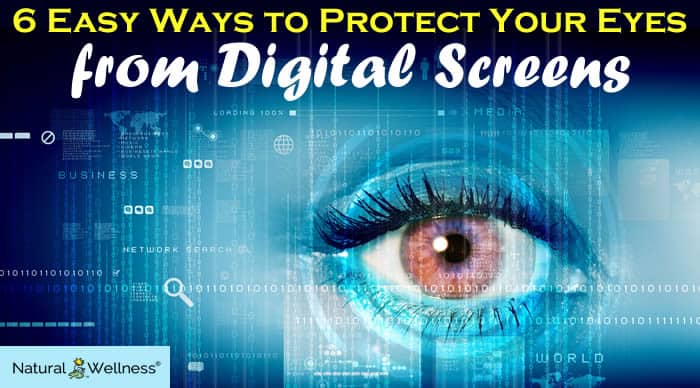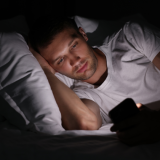

You’ve seen folks walking up and down the streets (and occasionally bumping into things) with their eyes glued to their smart phones. You may have a relative or two who spends most of their free time in front of a television or computer. Considering how much light our myriad screens emit throughout the day, is it any wonder that cases of nearsightedness are on the rise?
Constantly staring at a screen, no matter how small, will do your eyes no favors. Fortunately, there are ways to improve the damage.
You Are Now Entering…the HEV Light Zone!
Some readers may recall Rod Serling’s spooky narration from The Twilight Zone: “You unlock this door with the key of imagination. Beyond it is another dimension – a dimension of sound, a dimension of sight, a dimension of mind. […] You’ve just crossed over into the Twilight Zone!”
Several decades later, Serling’s sci-fi masterpiece is still flickering across our screens, but the ubiquity of those screens, and how they influence our lives, is a subject eerily suited to The Twilight Zone.
You can just imagine how Serling might introduce the episode:
“Picture if you will…an endless picture show. A circus of flashing images and information that fits inside your pocket. But this convenience demands a terrible cost: The very eyes that it delights!”
At the moment, experts are still debating whether “screen addiction” is a legitimate diagnosis, but there is no doubt that staring at our phones, televisions, and computers can strain our eyes. That’s because phones and screens emit blue light, also known as High Energy Visible (HEV) light, which can damage living tissue.
According to Gary Heiting, OD, senior editor of AllAboutVision.com, “No one knows for sure at this point if prolonged use of digital devices actually causes permanent damage to the eyes.” It has been established that prolonged use causes eye strain, and “laboratory and animal studies have shown exposure to high levels of HEV light can damage tissue in the retina of the eye in a way that appears consistent with retinal changes associated with macular degeneration, a leading cause of permanent vision loss in older adults.”
Have You Been Exposed to Too Much Blue Light?
If these symptoms sound familiar:
- dry or irritable eyes
- blurred vision
- eye fatigue
- head, neck or back pain
then you may want to cut back on your screen time.
Sadly, these symptoms are becoming much more common. In 2015, The Vision Council reported that nearly two out of every three people have experienced eye strain from prolonged exposure to electronic screens. And no wonder. Nielsen reports that the average adult in the U.S. spends nearly nine hours per day on a device.
6 Ways to Protect Your Eyes
- Limit the amount of time that you check your phone, and try not to hunch when you do it.
- If you’re working at your computer, use the 20-20-20 rule endorsed by optometrists: Every 20 minutes, take a 20-second break, and stare at something 20 feet away. This relaxes the muscles around your eyes and also encourages them to blink more (something they don’t do as often when you’re staring at a screen).
- You can also improve your eye health by eating right. Fruits and vegetables always do a body good, but dark leafy greens (e.g., spinach, kale and collard greens) are particularly beneficial.
- Omega-3 fatty acids are also great, which you can find in certain fish or add to your diet with supplements.
- Lycopene and mixed carotenoids are powerful antioxidants that protect your vision from oxidative stress.
- Supplementing with zinc, Vitamin C, selenium and beta-carotene is also great for regulating both vision and overall health. Researchers at the National Eye Institute report that daily servings of these vitamins and nutrients can slow the progression of age-related macular degeneration.
Saving Your Vision
The importance of healthy eyes cannot be overstated. Researchers estimate that 80 to 85% of our perception, learning, and cognition are processed visually. Even if you don’t consider yourself a visual learner, you’ve got to admit eyeballs are pretty handy.
Last year, the American Optometric Association used the event to focus on the harmful effects of blue light. They recommended powering down digital devices at least one hour before bed, maintaining a comfortable distance from devices while working (at least an arm’s length), and adjusting settings or using a glare filter to decrease the amount of HEV light that enters your vision.




